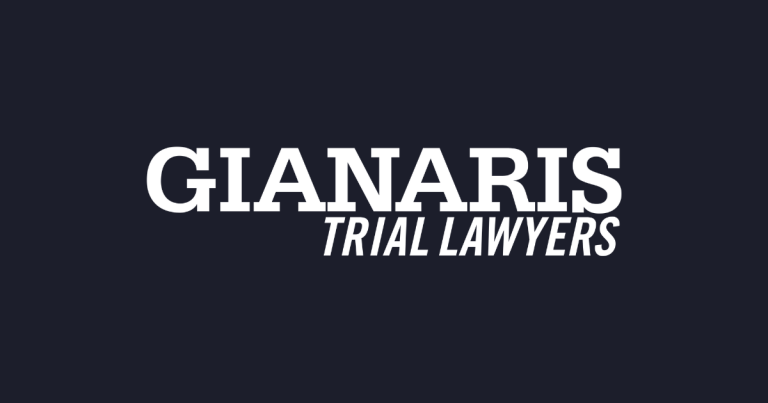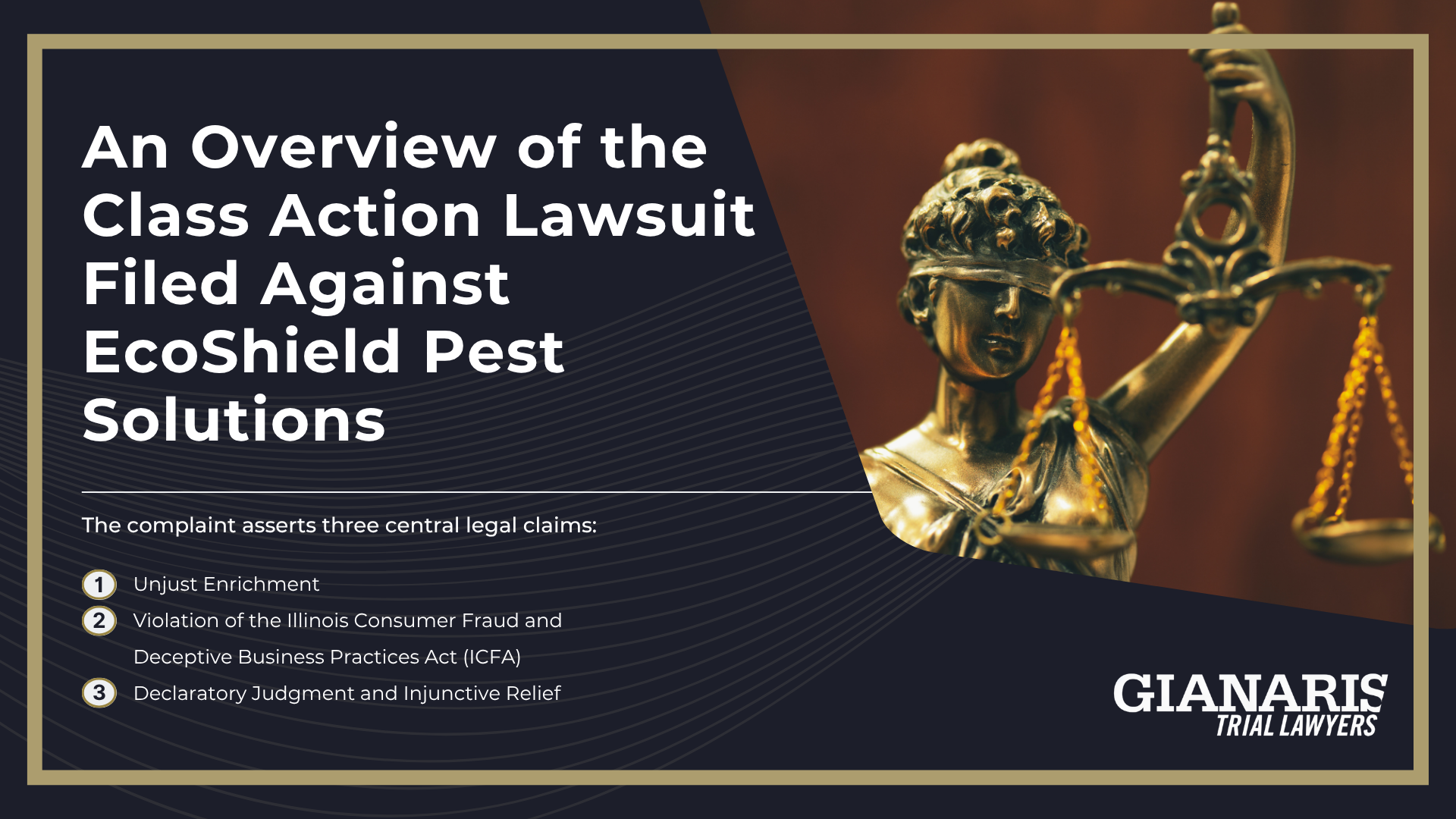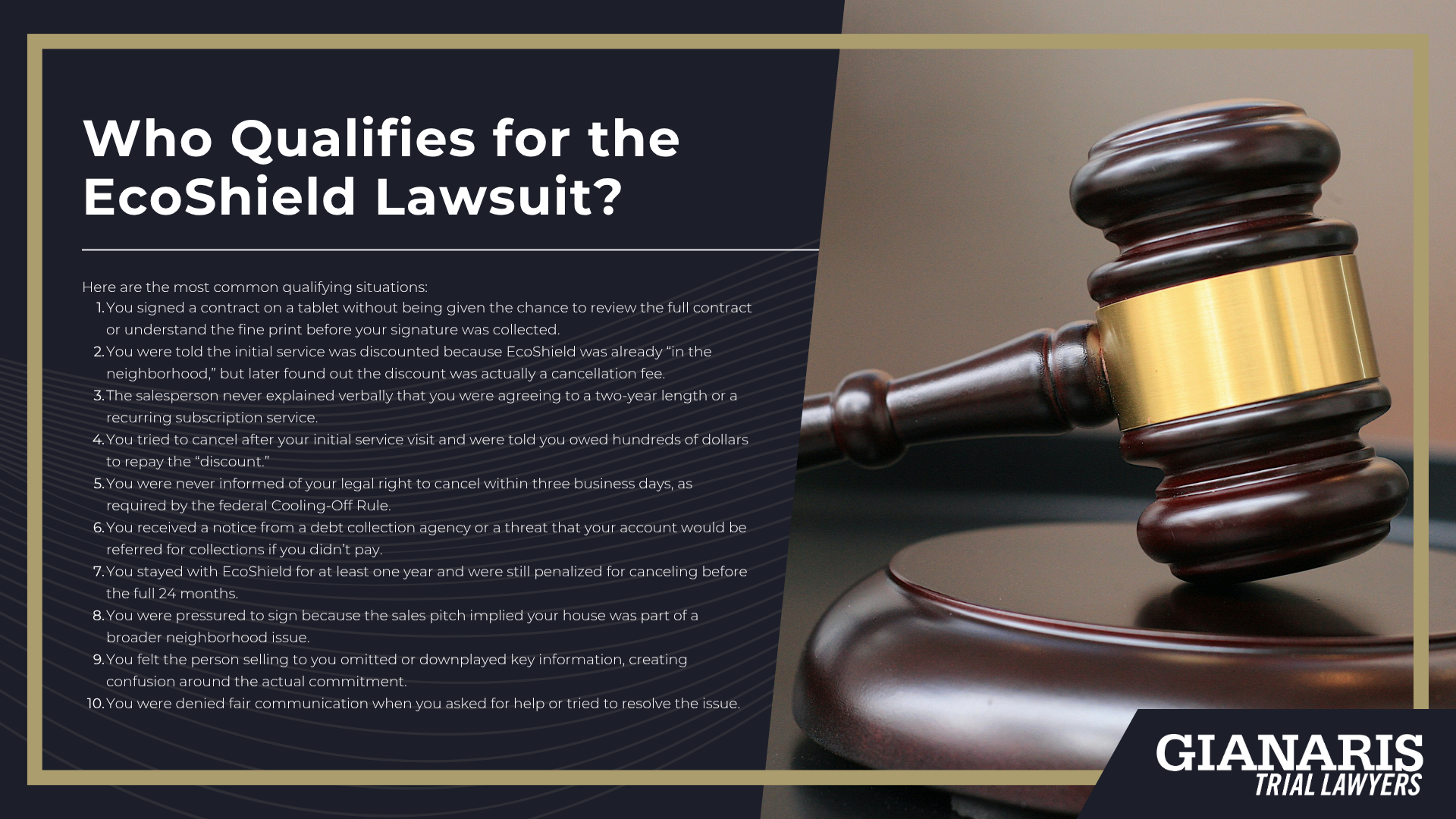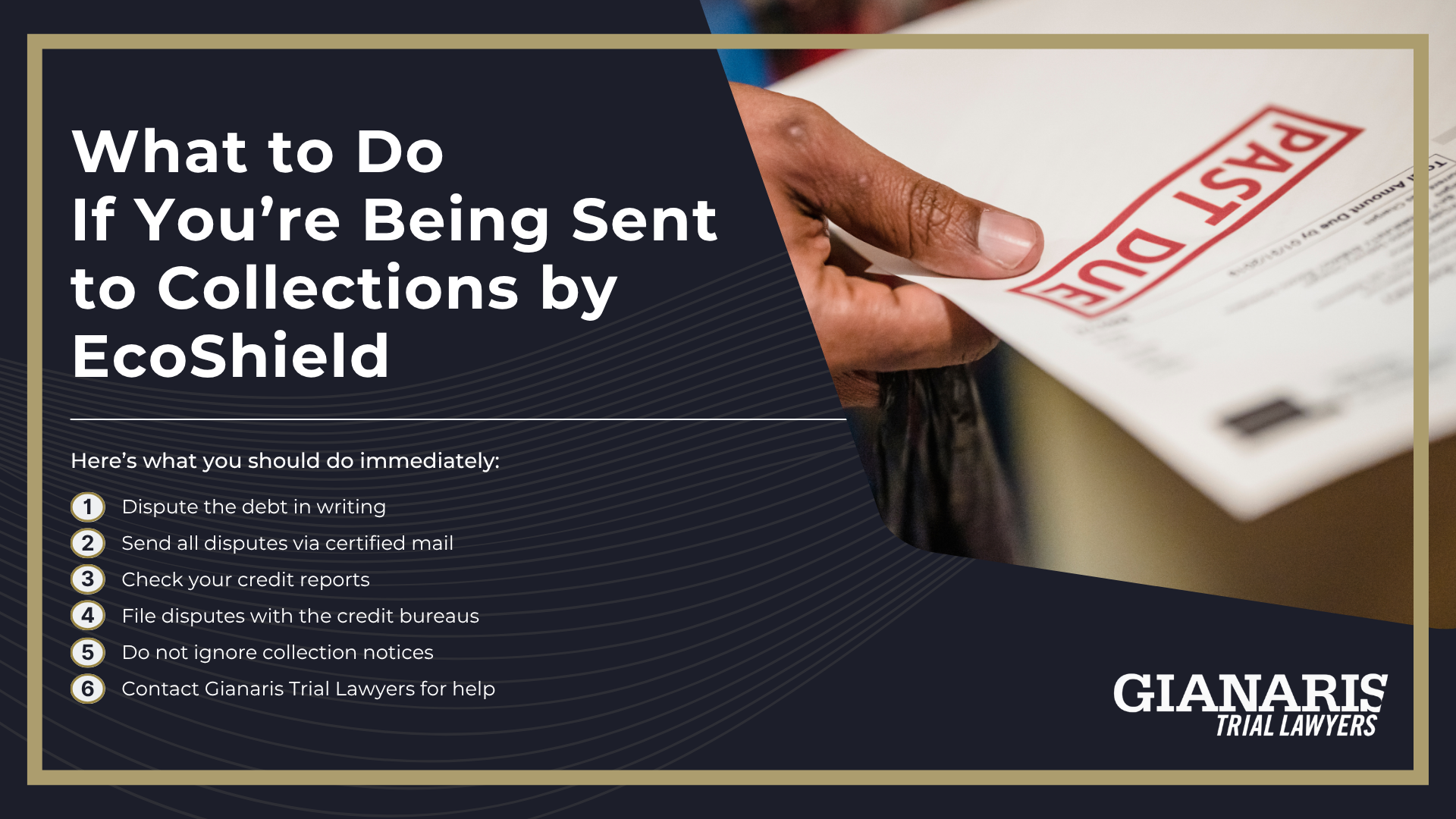EcoShield Pest Solutions operates a high-volume, door-to-door sales model that allegedly prioritizes speed, sales pressure, and deceptive tactics over transparency and consent.
According to the class action lawsuit filed by our law firm, EcoShield’s business practices are designed to trap homeowners into long-term, recurring service agreements by disguising cancellation penalties as promotional discounts.
These tactics are not isolated to individual homeowners but are rather part of the business model, the Complaint alleges.
EcoShield operates in over 27 states and reportedly serves more than 250,000 customers.
It recruits college students and young adults for its summer sales force, marketing the job as a fast-paced opportunity to earn large commissions, bonuses, and prizes.
EcoShield sales reps are trained to appear friendly and helpful: the kind of person you might trust at your front door.
Internal competition and quota-based rewards create strong pressure to close sales quickly, even at the expense of fair disclosure.
What results is an alleged national pattern of misleading contract tactics, consumer confusion, and widespread complaints about unauthorized cancellation fees, debt collection threats, and a lack of informed consent.

Below, we will cover how EcoShield’s plan is reported to typically unfold.
1. The Knock at the Door
A door-to-door salesperson wearing EcoShield-branded gear arrives unannounced and tells the homeowner that EcoShield is already servicing multiple neighbors due to a pest outbreak.
Sales reps may claim your house is one of several on the block affected by a pest problem, creating a false sense of urgency.
The rep may claim a technician is already in the area and offers to “squeeze you in” today at a deeply discounted rate.
2. The Sales Pitch
Often, the homeowner is told the standard rate for the initial service is $500 or more, but because of neighborhood participation or technician proximity, the price is discounted by hundreds of dollars.
It’s pitched as a limited-time discount that must be accepted immediately.
The Complaint alleges this is deceptive.
The cancellation penalty may be buried in the fine print.
3. The Signature Process
The salesperson presents a tablet-based service agreement with only a signature field visible, according to some homeowners.
Some homeowners have reported:
- Consumers are not given time to review the whole contract before being guided to a tablet screen that shows only a signature field.
- Instead, reps “guide” them through the signature process.
- Critical terms (such as cancellation rights, discount repayment, and service length) are almost never explained verbally at the time of signing; and
- Federal law requires oral disclosure of a 3-day cancellation right, but EcoShield reps allegedly often skip this step entirely.
4. The Initial Service Visit
The investigation reveals and the Complaint alleges:
- Within hours (or sometimes minutes) an EcoShield technician arrives to conduct a brief spray treatment, locking the customer into the agreement;
- This “same-daying” tactic ensures that EcoShield can claim a service was rendered and use it to deny cancellation requests; and
- The homeowner may not realize they’ve been locked into a recurring subscription service with a two year length, auto-renewal terms, and aggressive enforcement tactics.
5. The Trap
The investigation and the Complaint alleges:
- After the initial service, typical homeowners later attempt to cancel, realizing for the first time that they are locked into a multi-year contract.
- EcoShield informs customers that they must repay the previously granted “Annual Commitment Discount” to cancel;
- The so-called “Annual Commitment Discount” encourages consumers to sign up immediately by creating a sense of urgency and presenting the offer as an exclusive, limited-time opportunity; and,
- The “discount” then acts as a hidden cancellation deterrent, turning the so-called discount into a financial burden that EcoShield then uses to penalize or block cancellation attempts; and,
- Even customers who stayed on for at least one year have been told they must repay the full ‘discount’ as a penalty despite believing they fulfilled the commitment.
6. The Debt Collection Threat
EcoShield allegedly pursues customers through third-party debt collectors if a customer challenges fees or cancels after their initial visit.
Some consumers report being harassed by collection agencies, seeing negative credit marks, and facing ongoing pressure, even when they completed a full year of service or canceled in good faith.
In Summary
The investigation reveals, and the Complaint alleges:
- This pattern is not theoretical;
- It’s been documented in hundreds of online complaints across the BBB, Reddit, Trustpilot, and review platforms.;
- Many Consumers describe nearly identical experiences: false urgency, rushed contracts, same-day service to void cancellation rights, and pressure when they try to cancel;
- Some customers report that the whole contract was never made available to them before signing;
- EcoShield’s practices appear designed to play on trust at the front door, misrepresent a financial penalty as a benefit, and generate recurring revenue through misleading subscription models.;
- The “discount” is the bait to trap the customer, and the contract is the mechanism used to enforce it.
If this experience sounds familiar—if you were rushed to sign, never told about cancellation rights, or are now facing debt collection—you may be eligible to join the class action lawsuit.
If you made the mistake of trusting a salesperson at your door, you’re not alone.
Gianaris Trial Lawyers is committed to exposing this conduct and helping consumers fight back.









